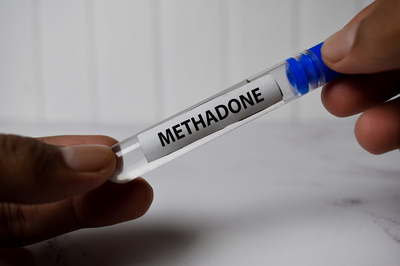
When it comes to treating opioid addiction, MAT can offer an invaluable partnership.
Substance abuse treatment is multifaceted with components including behavioral counseling, group meetings, evaluation, and treatment for co-occurring mental health issues and relapse prevention. Also, part of the treatment plan for most people: medication.
If you (or a loved one) are considering entering a rehabilitation program, you may be wondering what specific medications are used as part of the treatment program.
Read on to learn more about medication-assisted treatment (MAT), along with a roundup of the most common medications used to treat addiction.
What is MAT?
The FDA defines MAT as
“the use of medications in combination with counseling and behavioral therapies, which is effective in the treatment of opioid use disorders (OUD) and can help some people to sustain recovery.”
While there is sometimes a stigma associated with the use of medications for treating OUD, it has been proven to be both safe and effective when integrated into a comprehensive treatment plan. In fact, the FDA is calling for more to be done to facilitate treatment options, including helping more people gain access to MAT.
According to the Substance Abuse and Mental Health Services Administration (SAMHSA), MAT is linked with a number of beneficial outcomes, including improved patient survival, increased retention in treatment, decreased illicit opiate use and other criminal activity, increased patient’s ability to gain and maintain employment; and improved birth outcomes among pregnant women. Furthermore, MAT has also been linked with a reduced risk of contracting HIV and hepatitis C. MAT’s ultimate goal? Full recovery.
Five FDA-Approved Treatments for OUD and Alcoholism
Currently, the FDA has approved five drugs for treating opioid dependence and alcoholism in combination with counseling and psychosocial support: buprenorphine, methadone, naltrexone, Disulfiram (Antabuse), and Acamprosate.
Here’s a closer look at each, according to (SAMHSA).
- Buprenorphine
An opioid partial agonist, buprenorphine produces effects similar to opioids by at low to moderate doses when compared to full opioid agonists like methadone and heroin. Its benefits include lowering the potential for misuse; diminishing the effects of physical dependency on opioids, including withdrawal symptoms and cravings, and increasing safety in the case of overdose. Buprenorphine is also a long-acting agent, which means that patients may not need to take it every day.
- Methadone
Methadone has been used for decades in treating heroin addiction as well as narcotic pain medication. It has been proven to help support long-term success by reducing opioid cravings and withdrawal. It also blocks the effects of opioids. Methadone, which is taken once a day, must be received under a physician’s supervision. The dose and duration of treatment vary from patient to patient, and treatment plans are individually tailored for each patient.
-
Methadone saves lives.
Naltrexone
While buprenorphine and methadone work by activating opioid receptors in the body which suppress cravings, naltrexone works by binding and blocking opioid receptors. In doing so, it blocks the sedative and euphoric effects of opioids including heroin, morphine, and codeine. Naltrexone is also effective as a treatment for alcohol dependency as it blocks the feelings of intoxication allowing people to stop or limit their drinking in order to stay motivated and in treatment.
- Disulfiram (Antabuse)
The first medication approved by the FDA to treat chronic alcohol dependence, disulfiram is an alcohol-aversive or alcohol-sensitizing agent. It works by blocking the enzyme involved in metabolizing alcohol and causes an “acutely toxic physical reaction when mixed with alcohol,” according to the NIH. It can keep people from drinking because of these unpleasant side effects.
- Acamprosate
Also known by its brand name Campral, acamprosate is a prototypic neuromodulator thought to work by stabilizing chemical imbalances in the brain that are disrupted by alcoholism. It has been proven to be a “safe and well-tolerated pharmacotherapy,” according to the NIH.
While all five of these medications are associated with better outcomes for people suffering from addiction, this is only the case when they’re prescribed alongside counseling and support program participants as part of a complete treatment plan.
St. Louis drug rehab Harris House has offered comprehensive substance drug rehab programs, including MAT, for more than 50 years. If you or someone you love is struggling with addiction, contact us today to learn more about our safe and effective programming.








